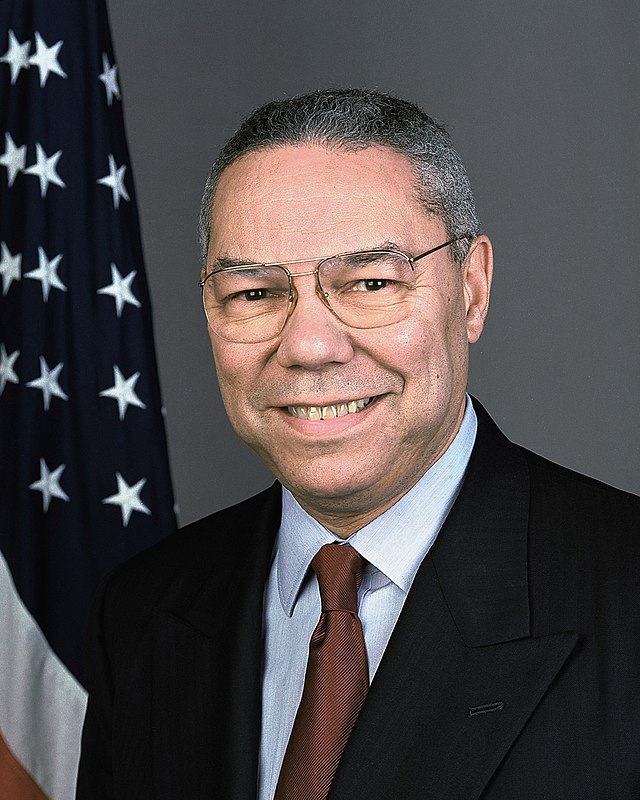Presidents Biden, Obama, Bush, and their wives attended a memorial service where Democrats and Republicans united in mourning a great American, Secretary Colin Powell, at the National Cathedral November 5.
Powell’s close friends, Secretary Madeleine Albright, Richard Armitage, Powell’s Deputy Secretary of State, and his son Michael Powell spoke.
Powell, who was a pivotal figure in the last quarter century of American history, and devoted his life to America, died in October from complications of COVID and Multiple Myeloma.
Powell’s son said, “he was a great leader because he was a great follower,” and “his life really was an American journey just like his autobiography, ‘My American Journey.’”
Powell served in the army for 35 years, under 10 presidents and through nine major military campaigns rising to the ranks of four-star general, National Security Advisor, Youngest Chairman of the Joint Staffs and Secretary of State.
“Until Barack Obama no Black man had risen so high …. his moderate instincts, military bearing, and high public standing recalled Dwight Eisenhower… Powell really did see himself as a problem solver rather than a deep thinker. Eisenhower had similar qualities.” says Martin P Sutton, History Professor, BS, MA Harvard.
Born in Harlem to hard working Jamaican immigrant parents, Powell attended the City College of New York. “It was there that he discovered the Reserve Officers’ Training Corps (ROTC) — an organization, he said, where ‘race, color, background, income meant nothing.’” NPR interview
“Always be looking for that which you do well and love doing and with those two together, man -you’ve got it,” Powell wrote.
He was commissioned an officer in the army in 1958 under the administration of Dwight B Eisenhower a decade after it was desegregated.
He summed up his can-do attitude with his thirteen rules of leadership in his book, “It Worked for Me,” emphasizing “perpetual optimism as a force multiplier,” open-mindedness, thoughtful decisions, and actions, “get mad, but get over it,” he wrote.
Michael Powell said there were no 13 rules at home. Home was “warm and loving” and they were taught “right from wrong, to take responsibility and never to blame others” and that “family was the foundation of his beliefs and a source of never-ending comfort.”
Armitage met Powell during two tours in Vietnam, where Powell rescued three fellow soldiers from a helicopter crash and took over leadership from an untrained officer in the field, receiving multiple medals and early promotions. They remained in contact daily for 40 years resolving to improve the military.
Condoleezza Rice writes “that the U.S military was his second family.”
Powell learned from each war and leader and developed The Powell Doctrine which states that war should be a last resort, have a clear, obtainable objective and exit strategy, with overwhelming force and strong support at home and abroad.
One of Powell’s greatest regrets was the major role he played in starting the Iraq war. Powell gave a speech to the U.N. General Assembly in full support of the war, a speech he would later come to regret. “I regret it. I will always regret it,” he said during a talk at Harvard.
“My heart aches because we have lost a friend and our nation one of its finest and most loyal soldiers,” Albright said, “.. but he would be “commanding us, to stop feeling sad, to turn our gaze once again from the past to the future and to get on with the nation’s business while making the absolute most of our own days on earth, one step at a time.”
In his final interview with Bob Woodward in July 2021, Powell said, “It’s all one country, one people” and “don’t feel sorry for me, I haven’t lost a day of life fighting these two diseases,” referring then to Multiple Myeloma and Parkinson’s.


